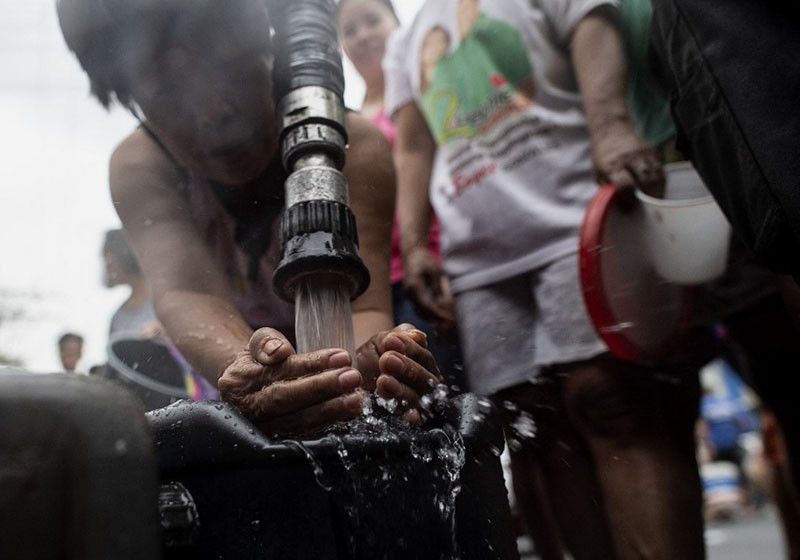Unlocking Philippines' natural wealth: A collaborative path to sustainable, inclusive dev't

The Philippines, endowed with abundant natural resources, stands at a pivotal moment in history, where the responsible and sustainable utilization of these assets can drive inclusive economic growth and development.
The Philippines must strategically rethink its options. This would require sustained political commitment to promote responsibility and cooperation that are shared equitably. The decisions we make today will resonate through generations and reverberate through every level of our economy.
The country’s development necessitates substantial shifts in policies and approaches, urging a proactive stance on risk reduction in investments. The convergence of natural and human-induced hazards, exacerbated by climate change and global warming, presents a tangible risk. This extends beyond environmental considerations, as it puts food, energy, and water security, along with the livelihoods, jobs, and well-being of Filipinos at an uncertainty.
Acknowledging the pivotal role of the private sector as the driving force behind our economic growth and development, the government should actively promote private sector participation in initiatives and projects related to climate change mitigation, adaptation, and strategic investments in industries like water, mining, and forestry. There are numerous opportunities in these industries that will yield substantial results.
A similar message was also shared by the Department of Environment and Natural Resources (DENR) officials, Secretary Maria Antonia Yulo-Loyzaga and Undersecretary Carlos Primo "CP" David, during the recently held Stratbase-organized Pilipinas Conference 2023 with the theme, “The Path Towards Economic Security: Turning Global Risks into Opportunities.”
During the session on “Unlocking Philippine Natural Wealth: Sustainable Utilization of Resources for Economic Prosperity,” they underscored the urgency and significance of harnessing the country's water, mineral and forest resources.
Secretary Yulo-Loyzaga's vision for the Philippines is one of strategic planning and inclusive development. She announced that they would list priority investment areas for minerals, forestry, water, and terrestrial coastal marine resources, emphasizing a commitment to green and blue economy.
Furthermore, the opening of 1 million hectares of classified government forest lands for investments within the first quarter of 2024 signals a bold step toward fostering sustainable economic activities within these areas.
The DENR's aim to establish a national government-led platform for carbon credits, facilitating the trading of commodities through a government-to-government approach, positions the Philippines as a leader in environmental stewardship and climate action.
Secretary Yulo-Loyzaga's call to utilize the Philippines' status as the 4th largest nickel exporter and host to significant copper deposits, valued at US$ 1.1 trillion, for decarbonization and industrial processes aligns with global efforts toward sustainability. She emphasized the need to engage the private sector in the responsible and sustainable development of mineral resources, fostering partnerships to maximize the potential of these valuable assets.
The current worldwide shift towards clean energy represents a trajectory characterized by the implementation of renewable energy, energy storage, and advanced digital technologies. It is heavily reliant on minerals. This scenario presents a distinctive opportunity for the Philippines, positioning the nation to play a crucial role in the global clean energy market.
These strategic initiatives have the opportunity to unleash the full potential of the Philippines' abundant mineral resources, directing them towards the nation's industrialization, digitalization, energy transition, and overall economic development. Despite the hurdles faced by the mining industry in recent times, there is a steadfast commitment to reshaping the narrative. The aim is to cultivate a perception that acknowledges the industry's pivotal role in rural community development and the overarching advancement of the country.
Meanwhile, Undersecretary CP David, in addressing the often-viewed disadvantage of water in the country, highlights its untapped potential. Recognizing water as one of the country's greatest assets, he announced 135 water projects available for private sector inventory.
The three-step process outlined by Undersecretary David includes quantifying and mapping all water assets, resolving conflicts among government water sector players, and engaging the private sector for development.
Highlighting the vital importance of contemporary and innovative technologies is essential in the establishment of water-related infrastructure. These advancements serve as the foundation for efficient water use, guaranteeing not only the sustainability of our water resources but also their optimized utilization across various sectors.
For agriculture, investing in necessary irrigation technologies, effective water distribution systems, and sustainable farming practices has the potential to transform our agricultural sector. The private sector's ability for innovation and scalability can bring forth solutions that optimize water usage, reduce wastage, and improve overall agricultural production efficiency.
Undersecretary David's call for private sector participation underscores the collaborative approach needed to transform water from a potential disadvantage to a catalyst for economic progress, particularly in local communities.
The case for unlocking the Philippines' natural wealth is rooted in the intersection of economic growth, environmental sustainability, and inclusive development. Water, minerals, and forests, when utilized efficiently and responsibly, can become engines for progress, providing tangible benefits to communities and contributing to the country's overall economic prosperity.
The private sector's engagement is crucial, not just for the viability of projects but for ensuring that the benefits reach the communities that need them the most. It aligns with Secretary Yulo-Loyzaga's emphasis on private sector involvement in mineral resource development, promoting responsible practices and fostering partnerships that drive economic growth while safeguarding environmental integrity.
The DENR's vision represents a transformative approach to the Philippines' natural assets. It's a call to action for responsible utilization, strategic partnerships, and inclusive development.
The unlocking of the country's natural wealth is not just an economic imperative but a commitment to building a sustainable and resilient future for all Filipinos. As the nation stands at this crossroads, the responsible and sustainable development of natural resources emerges as a powerful tool for driving positive change, fostering inclusivity, and contributing to the global agenda of environmental sustainability.
Felix Vitangcol is a fellow for environment of think tank Stratbase ADR Institute. He is the secretary-general of the Philippine Business for Environmental Stewardship (PBEST).
- Latest





























